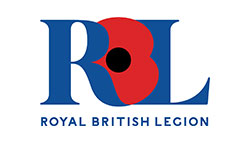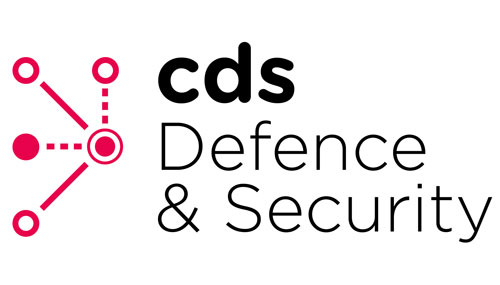The Army Rugby Union Assurance and Safety Policy
General
The Army Rugby Union (ARU) is a Category 1, Risk to Life (RtL) sport sitting within and under the control and direction of the Army Sport Control Board (ASCB). The Assurance and Safety of every team (representative, Corps or unit) playing rugby union within the Army falls into two categories of direction; to comply with the relevant regulations, guidance of its governing body and that on the Ministry of Defence (MOD).
As a National Constituent Body (NCB) of the National Governing Body (NGB) the Rugby Football Union (RFU) itself is regulated by World Rugby (WR) and the ARU must adhere to the guidance of playing rugby union that is stipulated by our governing body the RFU and its governing body WR.
The ARU has a comprehensive assurance process, the following documents should be read and adhered to;
a) ARU Fixture Authorisation Process
b) The Army Rugby Union Safety Management Plan
c) ARU Department Planning Assumptions July 2022
d) The Army Rugby Union Clothing and Equipment Care Directive
e) Army Rugby Union Medical Plan
f) Army Rugby Union Community Rugby Medical Emergency Action Plan
Medical
The RFU has a comprehensive medical section on their website here and its medical section via here.
The RugbySafe Essential Guides provide information on player welfare and safety related topics and frequently asked questions.
Please Note: Any advice provided by the RFU in relation to specific injuries, illnesses or disabilities is only general advice and it should not be used as a substitute for the individual advice patients receive when they consult their own doctor. Individuals are advised to consult their own General Practitioner or Hospital Consultant for specific advice on their condition and/or fitness to train for or play rugby.
The following is a list of useful RugbySafe documents; It includes essential direction and guidance on:
f) Concussion
g) Diabetes
h) Epilepsy
j) Asthma
l) Hearing Aids
n) Safeguarding
First Aid treatment
a) First Aid and Treatment Essential Guide
b) Automated External Defibrillators
c) Emergency First Aid in Rugby Union Course
Every ARU team must have downloaded and completed the RFU Medical Emergency Action Plan
Affiliation and Game Level
All teams that wish to play rugby union in the Army must affiliate to the ARU. The process is very simple and all the relevant information and paperwork to submit can be found on the Affiliation page.
As part of the affiliation process the team / unit must confirm that they have the following qualified people to train and facilitate a rugby union match:
a) A qualified coach. This must be a minimum level 2 coach (qualified to coach Adults) who has completed a NGB level two coaching qualification. The RFU link is here.
b) It should ideally also have an individual that has completed an NGB ‘pitch side first aid’ course.
c) The level of medical cover required at a rugby union match is dependent on the ‘level’ of the game. As a guide an RFU Premiership game is classified as level 1, Championship as level 2, National 1 as level 3 and National 2 as level 4. The ‘level’ number increases as the ‘level’ of game decreases. The NGB player safety and well being programme can be viewed here.
d) Army Rugby Union matches are normally classified at the following levels:
Inter Services:
I. Senior Men – Level 2/3.
II. Senior Women – Level 6.
III. U23 – Level 5/6
IV. Masters – Level 6/7.
V. Sevens – dependent on competition – between level 2/5.
Other representative fixtures:
(dependent on fixtures) are generally levels below those for inter service unless playing a National team or other National service teams.
Corps Matches:
I. Merit 1 League. Level 6/7.
II. Merit 2 League. Level 8.
III. Women’s League – Level 8/9.
Inter Unit Matches:
I. Premiership. Level 6/7/8.
II. Championship. Level 9/10 and below.
III. Friendly fixture – Level 9 and below.
Any team that is unsure of what level of medical cover they should have as a minimum should contact the ARU Operations Officer on 94222 7080 or email
Prior to any ARU affiliated team playing a rugby union match they must complete a Risk Assessment.
An example of a ‘rugby risk assessment’ can be found here – Generic Risk Assessment
This example risk assessment must be used as a basis for other RAs but does not replace it. There will be geographic, climatic and situational differences at events/matches which must be taken into account.
The signature authorising the RA must be trained on Safety Risk Management in order to be competent.
RAs are the start point and active, however a dynamic risk assessment must complement the existing RA on the day of activity.
The RFU Covid-19 coaching risk assessment – Jun 20 must also be completed.
Both documents must be fully completed and passed to the individual responsible for endorsement of ‘unit’ risk assessments prior to and training or match being played.
Before a match is played the ‘unit rugby officer’ (or his / her deputy) should complete the pre match ground safety assessment found here. This should also confirm that a suitably qualified referee has been appointed to the game by either the Army Rugby Union Referee Society (ARURS) or the United Kingdom Armed Forces Rugby Union Referee Society (UKAFRURS).
Injury Reporting
Injury Reporting. Reportable Injury Events.
These are defined as:
- An injury which results in the player being admitted to a hospital (this does not include those that attend an Accident or Emergency Department and are allowed home from there).
- Deaths which occur during or within six hours of a game finishing.
- Clubs are also required to report injuries in which artificial grass pitches or equipment such as sports goggles are involved.
Reportable Injury Event Protocol.
In the event of a serious injury which fulfils one of the above definitions, after providing immediate first aid and arranging transport by ambulance to hospital, the following protocol is to be followed:
- A club representative must phone the RFU Injury Reporting Helpline 0800 298 0102, or email SportsInjuriesAdmin@rfu.com as soon as the seriousness of the player’s condition is confirmed and certainly within 48 hours of the game or training session.
- In the event of a potentially catastrophic injury or fatality the RFU Injured Players Foundation (IPF) will be notified and will get in touch with the club and/or player (or their family) to confirm the injury and any immediate welfare needs.
- You must complete and return an RFU injury report form.
- DURALS (Defence Unified Reporting &Lessons System) has replaced the AF510 process for the reporting of sport injuries across all three single services. The reporting of accidents via DURALS sits with the Activity Lead who will be managing the risk on behalf of the activity owner iaw ACSO 1200.
- Record witness statements. Where a potential insurance or personal injury claim may arise, clubs and schools are advised to retain on file witness statements. These statements must confine themselves to the facts and not include opinion, hearsay or apportion or infer blame. They must be signed and dated by the person making them.
Reportable Injury Events – Referee Reports.
- Following a reportable injury, the referee should also complete Referee Injury Event Form.
- For information and support on how to deal with a serious injury is available: Guidance for Managing Serious Injuries.
- The RFU recommends that all clubs and organisations running a rugby activity keep a record any incidents both on and off the pitch.
- On the pitch it is good practice to provide first aiders with a book in which to record incidents which required their attendance.
Useful Contacts: Sports Injuries Administrator (SIA): Tel: 0800 298 0102
Email: SportsInjuriesAdmin@rfu.com
Concussion
The ARU concussion policy including the Army medical requirement and ‘back to play’ policy can be found here
RFU HEADCASE
a) Recognised as one of the UK’s leading concussion awareness and education resources, the RFU’s HEADCASE programme aims to increase understanding and provide information on concussion and other related topics, including how to prevent and manage suspected concussions.
b) To complete one of the online education HEADCASE modules please click on the relevant module below:
1) Adult Coach
2) Players
For general information on concussion and the HEADCASE programme see the RFU General Information page.
Other information can be found at:
1) RFU Regulations 9 and 15 and their associated guidance cover concussion.
2) World Rugby Concussion Policies and Education:
I. Laws

















